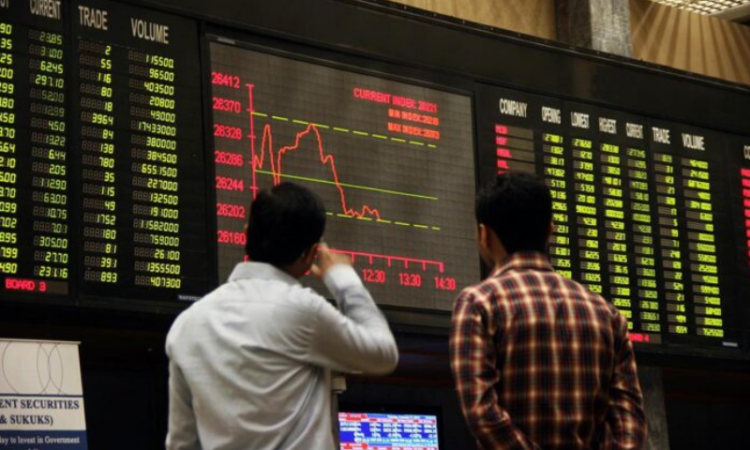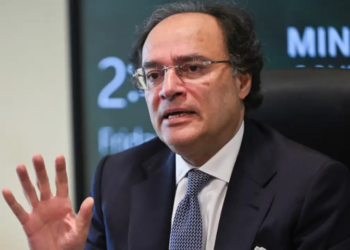Karachi, December 19, 2024: The Pakistan Stock Exchange (PSX) experienced another record-breaking single-day decline on Thursday, with the KSE-100 index plummeting by 4.32%, closing at 106,274.97 points.
The market began the day on a relatively positive note, reaching an intra-day high of 111,745.02 points, but subsequently tumbled to an intra-day low of 105,937.37 before settling slightly higher. Trading volume reached 531.31 million shares, indicating a relatively active session despite the downturn.
This sharp decline follows Wednesday’s significant drop, where the index fell by 3,790 points (3.30%), closing at 111,070.29, marking one of the steepest single-day losses in PSX history. Earlier in the week, the market had soared past 117,000 points, reaching a historic high before succumbing to bearish pressures.
The market’s slump was attributed to several factors, including
- Stock Overvaluation: Investors engaged in profit-taking after the recent market rally.
- Currency Depreciation: Ongoing rupee weakness fueled concerns over economic stability.
- Global Equity Trends: Declines in global markets also weighed on investor sentiment.
- IMF Negotiations: Uncertainty over Pakistan’s talks with the IMF regarding taxes and structural reforms further dampened confidence.
- Sector-Specific Losses: Key sectors such as fertilizer, oil and gas, and banking posted significant losses, dragging down the index.
Local mutual funds, which had been net buyers for 14 consecutive sessions, turned into net sellers, contributing to the downward pressure.
Despite the overall bearish sentiment, select stocks such as Pakistan State Oil and Indus Motor managed to post gains. Wednesday’s trading volume stood at 1.11 billion shares with a value of Rs60 billion, underscoring the market’s active participation despite its volatility.
Experts believe the decline is largely driven by short-term profit-taking and external economic pressures, with analysts expressing optimism about the market’s long-term potential. They cite strong fundamentals and resilience as reasons for cautious optimism despite the current downturn.









